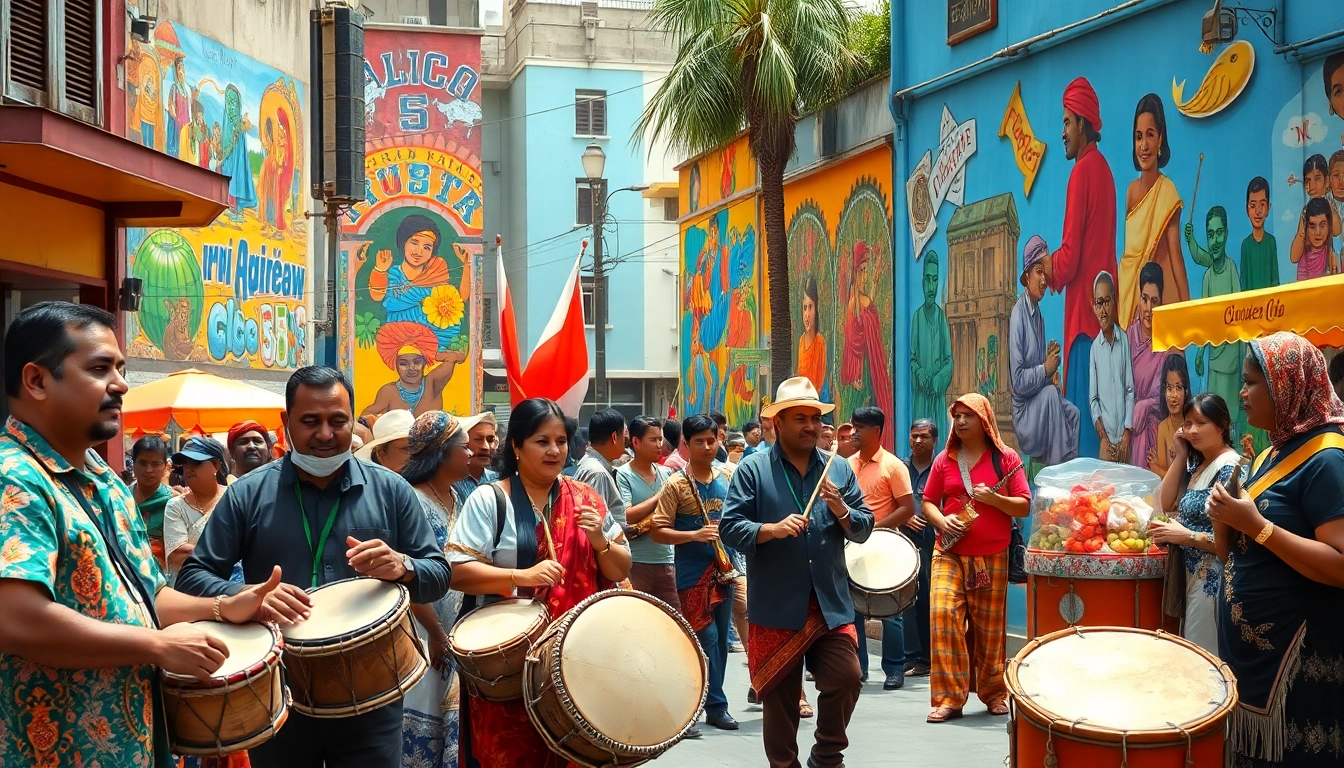The Definition and Importance of Culture
Culture is an encompassing term that describes the social behavior, norms, customs, beliefs, and practices that characterize a group or society. It is the essence of human interaction and expression, encompassing what we deem important, beautiful, and distinctive. Understanding culture is crucial because it shapes our identities, influences our perceptions of the world, and guides our interactions with others.
What is Culture?
Culture is not merely an abstract concept; it is experienced and manifested in tangible forms such as art, music, food, rituals, languages, and social practices. The components of culture can be grouped into three primary categories: material culture (the physical objects we create), non-material culture (the ideas and beliefs), and social institutions (the organized mechanisms that structure society).
Key Elements of Culture
The key elements of culture include values, beliefs, norms, symbols, and language. These components interact dynamically to form the culture of a society. Values reflect what is deemed important within a culture, while beliefs provide insight into the collective consciousness. Norms establish expectations for behavior, symbols convey meaning, and language serves as the primary medium of communication. Together, these elements shape cultural identity and continuity.
The Impact of Culture on Identity
Cultural identity is shaped by one’s cultural environment, experiences, and community. Individuals often find solace in cultural practices that affirm their uniqueness and continuity. This impact reflects in how people see themselves and others. A strong cultural identity enhances self-esteem, fosters a sense of belonging, and influences social interactions, civic engagement, and personal values.
Cultural Heritage and Preservation
Cultural heritage consists of the traditions, artifacts, and values that are passed down through generations. Preservation of cultural heritage is vital to maintaining the diversity and richness of human history. By safeguarding these traditions, we allow future generations to understand and appreciate their past.
Methods of Preserving Cultural Heritage
There are numerous methods employed to preserve cultural heritage, including documentation, education, and community engagement. Documentation includes archiving historical records, oral histories, and artifacts. Educational programs are crucial for imparting the significance of cultural heritage to younger generations, while community engagement encourages local participation in preservation efforts through events and workshops.
The Role of Communities in Heritage Preservation
Communities are at the heart of cultural preservation. Local insights are invaluable in identifying which practices and traditions are worth preserving. Community-led initiatives often lead to increased participation and investment in preservation efforts, ensuring that the cultural heritage remains relevant and respected. This engagement fosters pride and continuity among community members.
Case Studies of Successful Preservation Efforts
Several successful case studies highlight how communities can effectively preserve their cultural heritage. For example, the Maasai community in Kenya implements cultural tourism to share their traditions while ensuring financial sustainability. Such initiatives illustrate that cultural preservation can also lead to economic empowerment, encouraging a cycle of heritage appreciation and responsible tourism.
Cultural Exchange and Globalization
The phenomenon of globalization has paved the way for unprecedented cultural exchange. This interaction can lead to enriching experiences but also presents challenges that must be navigated carefully. Understanding this dynamic is crucial for fostering respectful relationships across cultures.
Understanding Cultural Exchange
Cultural exchange refers to the reciprocal transfer of ideas, customs, and practices between different cultures. This process allows for a richer understanding of diverse perspectives and can transform societal norms. Cultural exchange occurs at various levels—through migration, travel, trade, and digital communication—which has been significantly accelerated in the modern era.
Positive Effects of Globalization on Culture
Globalization can facilitate innovation, creativity, and cross-cultural appreciation. For instance, international collaborations in the arts and sciences can lead to advancements that benefit humanity. Access to diverse cultural expressions can foster empathy and expand worldviews, promoting harmony and shared understanding. Additionally, globalization encourages the preservation of lesser-known cultures by embedding them into global dialogues.
Challenges in Cultural Exchange
Despite its promising aspects, cultural exchange is not without challenges. Issues such as cultural appropriation, misrepresentation, and homogenization pose risks. When elements of a culture are taken out of context or exploited, the originating culture’s significance can be diminished. It’s essential for participants in cultural exchange to approach with respect, understanding, and a sensitivity to the historical context.
The Influence of Culture on Business
Culture significantly influences business practices and consumer behavior. Businesses today must understand cultural dynamics to succeed in a diverse marketplace. Recognizing cultural differences enables companies to connect meaningfully with their audiences and craft strategies aligned with local norms and values.
Cultural Considerations in Marketing Strategies
Marketing strategies must reflect cultural nuances to resonate effectively with diverse audiences. An awareness of cultural values and beliefs is crucial for creating campaigns that are both engaging and respectful. For example, using culturally relevant symbols and avoiding stereotypes can foster trust and improve corporate image.
How Culture Affects Consumer Behavior
Consumer behavior is deeply rooted in cultural context. Factors such as family structure, social status, and traditions influence purchasing decisions. For instance, in collectivist cultures, families often make joint decisions, while in individualistic societies, personal choice prevails. Businesses that tailor their offerings based on these cultural insights tend to achieve better customer loyalty and satisfaction.
Adapting Business Practices to Different Cultures
Adaptation is critical in cross-cultural business. Companies must adjust their practices to fit local expectations and norms. This could range from altering product offerings to suit local tastes or modifying communication styles to align with cultural preferences. Multinational corporations often invest in cross-cultural training to ensure employees understand and navigate these differences effectively.
The Future of Culture in a Digital Age
The advent of the digital age has transformed how culture is created, shared, and experienced. Technology plays a dual role; it serves as a medium for cultural expansion and poses challenges to traditional cultural practices.
The Role of Technology in Shaping Culture
Technology shapes culture by enabling rapid communication and access to information. Platforms such as social media and streaming services allow for the democratization of cultural production, where diverse voices can share their narratives globally. However, the speed of digital engagement also leads to fleeting trends, raising questions about the permanence of cultural expressions in the virtual space.
Emerging Cultural Trends in the Digital Era
Emerging cultural trends reflect shifting values and interactions. The rise of virtual reality, augmented reality, and the gig economy can reshape societal engagement. Additionally, the integration of technology in traditional practices can redefine cultural experiences, blending the physical and digital worlds. The increasing reliance on user-generated content also encourages a participatory culture, reshaping how we consume art and information.
Strategies for Promoting Cultural Awareness Online
Promoting cultural awareness online requires strategic approaches. Leveraging the power of storytelling, businesses and organizations can highlight cultural diversity through educational content and collaborations with cultural leaders. Encouragement of dialogue and respectful exchanges on digital platforms can foster communities focused on cultural appreciation and understanding.














Leave a Reply